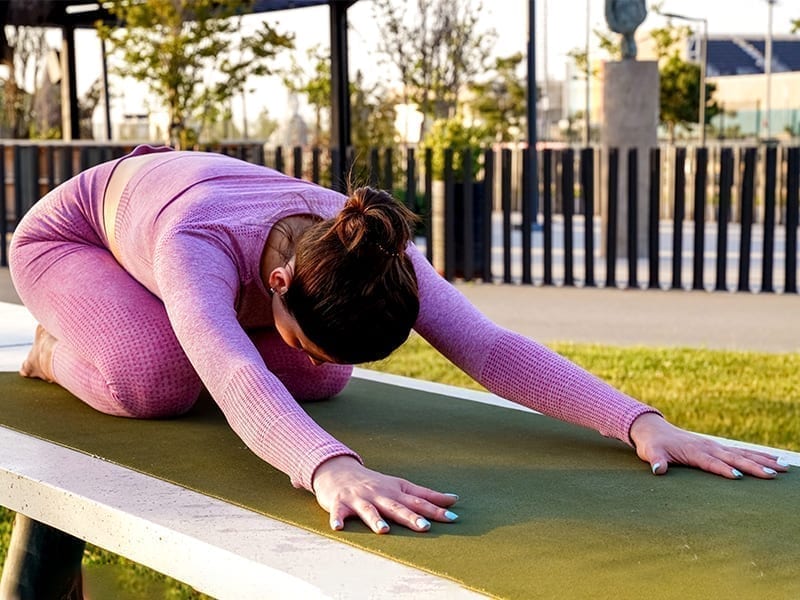Stress, anxiety, depression and many other instances of mental disturbances have seen a rapid rise in the pandemic, negatively affecting the sleep cycles of many people. From insomnia to night terrors, sleep disorders have become common during and after the lockdown. This is resulting in a plethora of health issues, both mental and physical, creating a vicious cycle. So, what is a healthy sleep cycle and how can you achieve it?
TC46 connected with Pulmonologist Dr Preyas Vaidya of Fortis Hospital, Mumbai to understand the rising phenomenon of sleep disorders. Here, he shares symptoms of sleep disorders, some common remedies that can help, and effective tips to regain a healthy sleep cycle.
1. What is a healthy sleep cycle?
A healthy sleep cycle is 7 hours of sleep at night for adults around 40 years of age, and six and a half hours of night sleep between 55-60 years of age. The sleep should lead to an individual waking up fresh and energetic in the morning.
2. What are some major sleep disorders & how do they affect you?
Common sleep disorders are:
- Insomnia
- Circadian Rhythm Disorders
- Sleep-Disordered Breathing
- Obstructive Sleep Apnea
- Narcolepsy
All sleep disorders affect sleep disruption, and lead to increased fatigue and increased daytime sleepiness.
3. What are the symptoms of sleep disorders?
Some common symptoms are:
- Inability to fall asleep
- Excessive daytime sleepiness
- Snoring
- Increased daytime fatigue
- Nocturia (urinating frequently at night)
- Choking at night
4. How has the pandemic affected people’s sleep cycle?
The stress of being affected by the virus during the pandemic has disrupted the psychological well-being of many, which has led to insomnia and disturbed sleep schedules. Overall, stress, a sedentary lifestyle and increased screen time have affected sleep schedules amongst many. Increased screen time can also affect the release of melatonin, the hormone that signals the body to sleep. Also, lack of moderate exercise affects one’s overall well-being, leads to weight gain and hence, the quality of sleep is distressed.
5. How are sleeping disorders diagnosed? When should you visit a doctor?
A sleeping disorder is diagnosed through an overnight sleep study. It is performed on an individual to check the stages of sleep, breathing, heart rate and oxygen levels during sleep. If a person is facing symptoms like unrefreshing sleep, waking up tired, increased daytime sleepiness, snoring, inability to sleep, then they should consider visiting a doctor.
6. What are some common home remedies to regain a healthy sleep cycle?
Some common measures are to follow:
- A moderate exercise regime.
- Healthy eating habits to avoid putting on excess weight.
- Not looking at screens at least 45 minutes before bed time.
7. What are the recommended treatments for various sleep disorders?
Treatment of sleep disorders varies from medical treatment to using devices like Continuous Positive Airway Pressure (CPAP) for obstructive Sleep Apnea. A specialist can also recommend medication and lifestyle modifications to an individual who is facing sleep issues. The course of treatment is determined after the sleep disorder and the severity of it is diagnosed.
8. What are some tips that can help someone with a sleep disorder?
The earliest sign of sleep disorder is not waking up refreshed in the morning and loud snoring. This should raise an alarm about a possible sleep problem. Seek a professional’s opinion. Do not neglect abnormal sleep as it can cause many chronic health problems like Hypertension, Diabetes, cardiac problems. The good part about sleep disorders is that there are excellent treatment options to reverse the abnormalities and achieve a good night’s sleep.
Some lifestyle tips are listed below:
- Reduce screen exposure before sleeping
- Regular moderate exercise 40-45 minutes 5 days a week
- Avoid eating heavy meals just before sleeping
- To keep a gap of at least 90 minutes between meals and falling asleep
- Slowing down and relaxing just before falling asleep
TC46 Shares 3 Yoga Poses For A Better Night’s Sleep
It is important that you give attention to your irregular sleep patterns and in extreme conditions, seek medical help. Adopting healthy habits in your lifestyle can also help get rid of the problem. One of the best and easy-to-do at home practices is yoga for better sleep.
1. Child’s Pose (Balasna)
This is one of the most effective yoga poses for sleep.
- First, sit on your heels.
- Bend forward, chest close to knees.
- Touch the forehead on the mat and stretch your hands forward.
2. Legs Up The Wall (Viparita Karani)
It’s the simplest form of yoga for good sleep that improves your blood circulation in the body.
- Lift up your leg against the wall making a 90-degree angle.
- Arms close to your sides.
- Stay in this position for at least five minutes.
3. Reclining Butterfly (Supta Baddha Konasana)
It is a revival pose that flexes your thighs and hips as well as calms your body. It releases mild stress and depression.
- Lie on your back straight.
- Join the soles of your feet together, forming a diamond shape with your legs.
- Hands should be at the sides of your hips.
- Relax, breathe and hold the position for 20 seconds.
